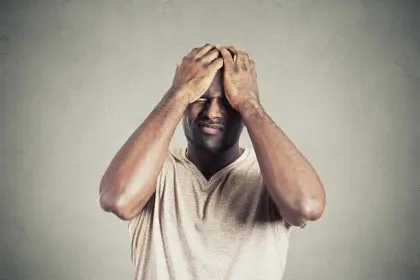 CNN correspondent Don Lemon, like most of the nation, was paralyzed by horror and disbelief when the video of Rodney King’s horrific beating spilled into living rooms across the country 20 years ago.
CNN correspondent Don Lemon, like most of the nation, was paralyzed by horror and disbelief when the video of Rodney King’s horrific beating spilled into living rooms across the country 20 years ago.
Jeff Reid, executive producer of “Race and Rage: The Beating of Rodney King,” actually thought, at first, that the pulverization of King by police officers was a case of some poor soul being beaten in another country, and not an American citizen being bloodied and battered in the streets of Los Angeles.
On Friday, March 4, Lemon and Reid, along with former lightning rod Rodney King, revisit the social fault line that initiated a seismic cultural quake and exposed a vast ethnic and racial chasm in the United States. Lemon and King return to the very street where the LAPD took their nightsticks, not only against King’s skull, but also against the nation’s sensibilities with equally blunt force, to probe the ensuing ramifications of the incident. And Lemon helps analyze the political and legal evolution of a city and a country since that day. The jolting documentary airs again on CNN on Saturday, March 5.
“When you think about it, that was a watershed moment in race relations across the country,“ Reid said. “We thought not only was it a good idea to go back and see how Rodney King is doing today, but also how time [has] changed the relationship between the LAPD and the black community and the Korean merchants and the black community … and [also] to look to see just how far w e’ve really come.”
e’ve really come.”
On “Race and Rage,” the award-winning Lemon reveals what King actually did that fateful night that set off the LAPD’s seemingly senseless rage. And CNN also shows a portion of the video beat down that swayed a nearly all-white suburban jury toward an acquittal, which set off a city’s senseless rage that ultimately culminated in one of the deadliest riots in U.S. history.
In this CNN special, which is alternately harrowing and cleansing to watch, Lemon will help you learn and come to terms with the following:
Why didn’t King stop after officers tried to pull him over for speeding? And why after that tumultuous period, did he continue to get into trouble?
What happened to the two officers who were convicted in the second trial and sentenced to time in federal prison;
Have African American and Korean relations improved over the 20 years;
What King did with the million dollar-plus judgment he received;
Did King ever find it in his heart to forgive the LAPD officers that beat him within an inch of his life;
If he still has nightmares of that night;
The surprising development in King’s personal life;
What changes Bernie Parks implemented after he was appointed police chief.
Lemon stated that “Race and Rage” is not a Rodney King love-fest nor is the program devoted to demonizing the LAPD. The truth and reality is more complicated than that, he intimated.
“Even though [King] had something horrific happen to him, he is not a sympathetic character,“ Lemon says. “Don’t think that he comes off as someone who did all the right things. He gets asked the tough questions. But, in the end, what happened to him did change race relations a bit.”
–terry shropshire










